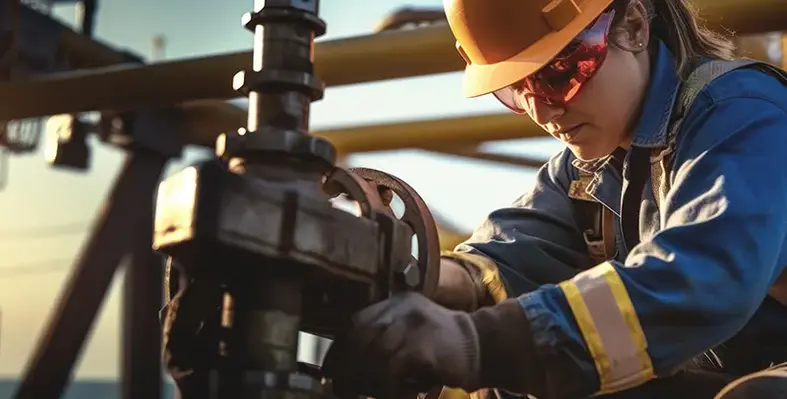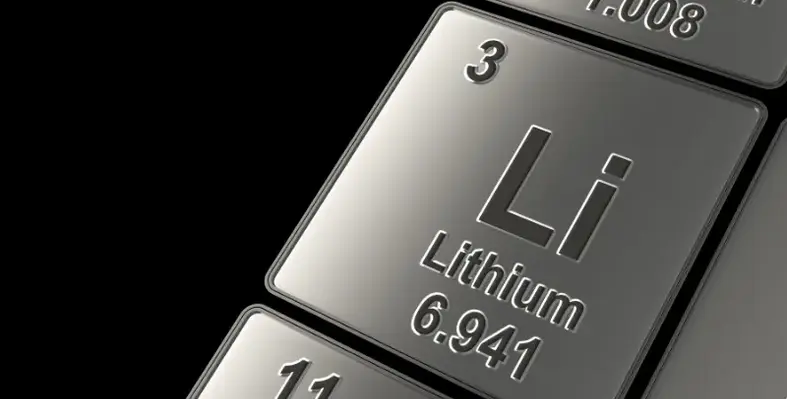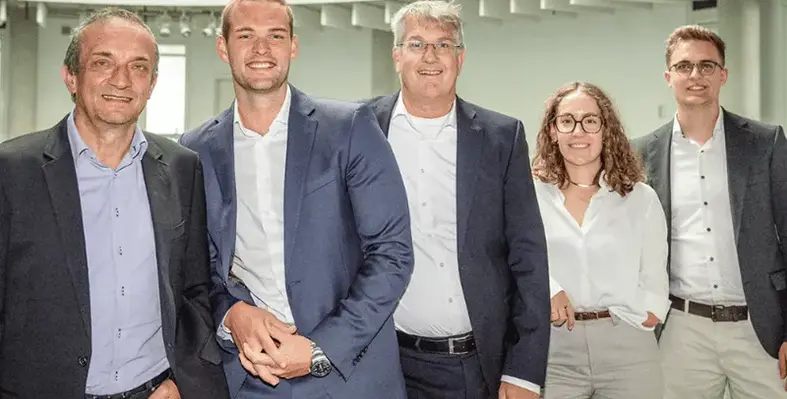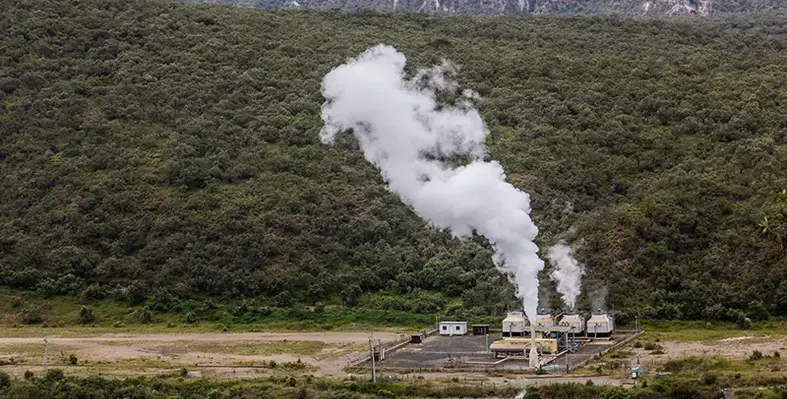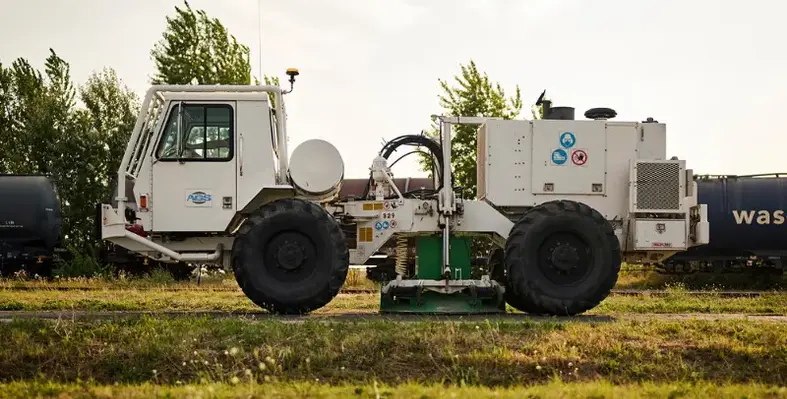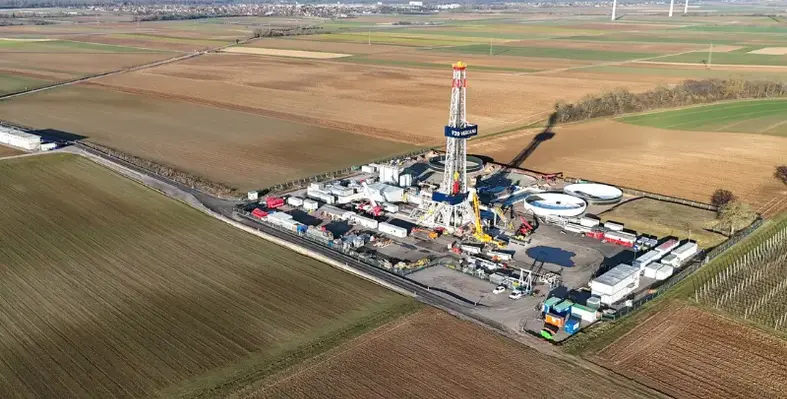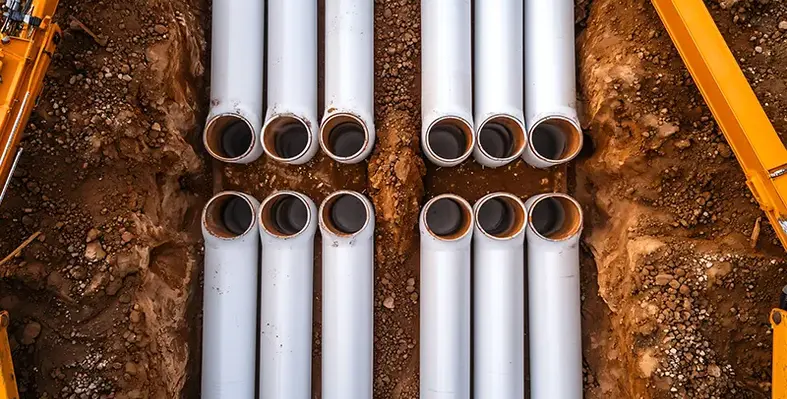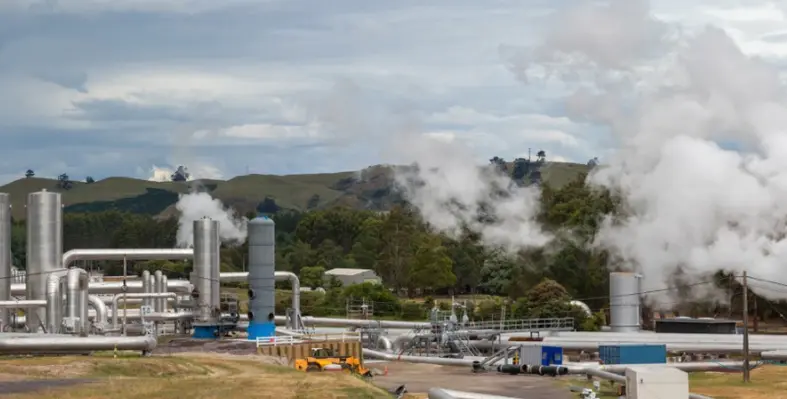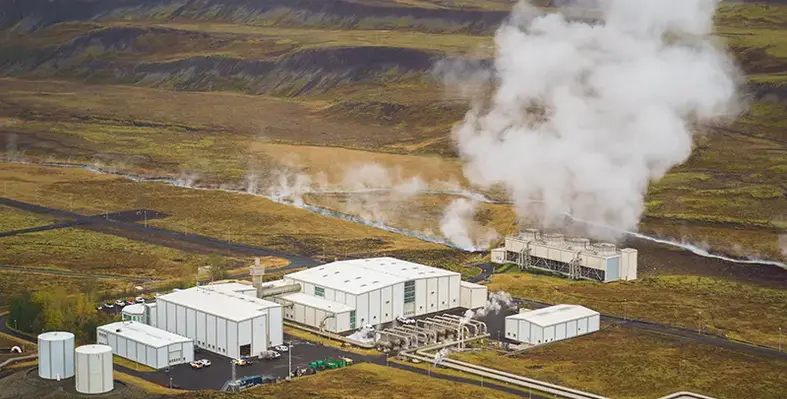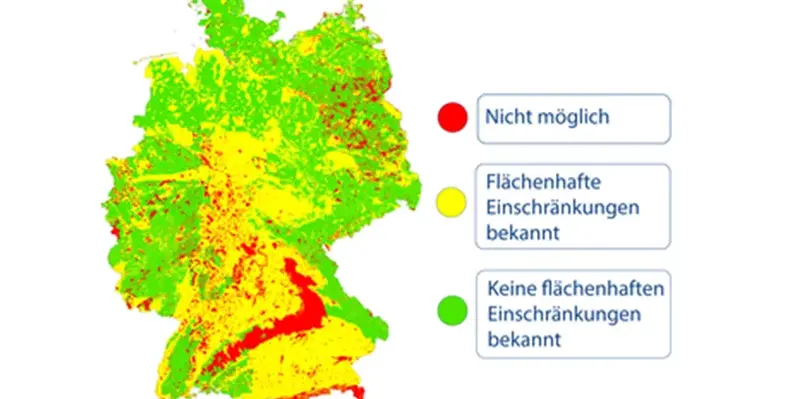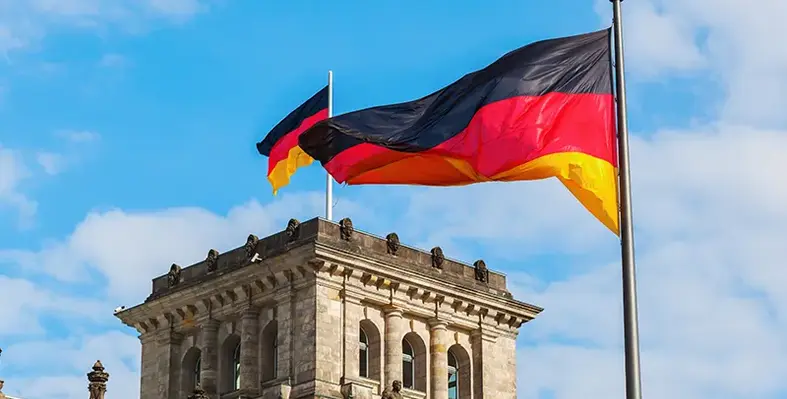Europe
Europe
- Region: Europe
- Topics: Geothermal
- Date: 25 September, 2025
A merger between two of the energy industry’s largest drillers could create a new heavyweight player within the geothermal sector, bringing with it fresh ideas, new technology and huge financial clout.
Italy’s Saipem and Norway’s Subsea7, best-known for their work across the global oil and gas industry, first announced their intention to merge earlier this year.
The new entity — to be renamed Saipem7, with combined revenues of some €21bn, and to be headquartered in Milan — will also have a strong interest in the emerging technologies being utilised across the geothermal field.
While the completion of the merger is not anticipated until well into 2026, the concentration of resources and huge expertise in drilling could yield significant gains for the advancement of the geothermal industry.
Announcing the rationale behind the merger, the two companies said that the new combined entity would offer a full spectrum of offshore and onshore services for clients working in renewable energy, as well as oil and gas, and carbon capture.
It also builds on existing work, particular by Saipem, which last year announced its intention to accelerate research and development in the geothermal energy world.
That included, for example, a collaboration with Geolog and Ignis H2 Energy to develop advanced technological solutions and conduct feasibilities studies for new geothermal plants in order to obtain clean and renewable energy, both in Italy and worldwide.
At the time, Saipem said the pact formed a part of its wider research and development efforts dedicated to offering geothermal technological solutions and for other energy transition applications.
Saipem also added that its three main areas of interest in the sector relate to next-generation geothermal energy systems, offshore geothermal energy and the conversion of oil and gas wells.
- Region: Europe
- Topics: Geothermal
- Date: 22 September, 2025
Arverne Group has completed Series B2 financing for its subsidiary, Lithium de France.
- Region: Europe
- Topics: Geothermal
- Date: 19 September, 2025
Factor2 Energy, a young Duisburg-based company with a bold vision for clean power, has successfully closed its Seed funding round, raising €7.7 million in venture capital.
- Region: Europe
- Topics: Geothermal
- Date: 12 September, 2025
The French Development Agency (AFD) has signed a cooperation pact with Kenya to accelerate the development of geothermal energy across the East Africa region.
- Region: Europe
- Topics: Geothermal
- Date: 01 September, 2025
Integrated oil and gas company MOL is conducting geothermal exploration and has carried out 3D seismic surveys around the Danube Refinery in Hungary to assess the potential for geothermal utilisation.
- Region: Europe
- Topics: Geothermal
- Date: 28 August, 2025
Technology and engineering solutions supplier, Odfjell Technology, has partnered with Vercana, Vulcan Group’s drilling subsidiary, for major geothermal project in Germany.
- Region: Europe
- Topics: Geothermal
- Date: 28 August, 2025
Germany’s Daldrup & Söhne AG has been awarded a contract to drill a pair of deep geothermal wells near Munich, in the south of the country.
In a statement, the company reported that the contract, worth €16.8mn (US$19.6mn), was awarded by Amperland Thermalwärme GmbH (ATW), a subsidiary of the joint municipal waste management company, based in Olching, northwest of Munich.
The drilling technology and geothermal energy specialist will now sink deflected deep geothermal wells with drilling lengths of around 2,430m and 3,300m on the site of the Geiselbullach cogeneration plant.
Work on the construction of the site is scheduled to begin in September this year, with actual drilling expected to be carried out from December 2025 to May 2026.
“It is impressive to see the determination with which the cities and municipalities around Munich are pushing ahead with the heat transition for their citizens,” said Andreas Tönies, CEO of Daldrup & Söhne AG.
ATW has received a grant of €8.8mn (US$10.3mn) for the financial implementation of the geothermal project, with the funds originating from the federal government’s Effective Heating Networks (BEW) programme.
The Daldrup & Söhne AG statement added that the project will enable the further expansion of the district heating network of the Olching municipal utility company and, for the first time in Germany, combine thermal waste utilisation with geothermal energy to expand the district heating supply in the region in a climate-neutral manner.
“This is a significant step for regional energy supply with fuel-independent heat,” added Tönies.
“The geological layers in the molass basin are now very well known and suitable for using deep thermal water to extract heat in a cycle system for local and district heating networks. We are already in talks with other potential municipal and private sector clients.”
- Region: Europe
- Topics: Geothermal
- Date: 21 August, 2025
Earlier this month, 3t, an organisation specialising in safety-critical training for hazardous industries, announced a new collaboration with Aberdeen-based Robert Gordon University (RGU) to establish a Geothermal Simulation and Modelling Platform.
- Region: Europe
- Date: 20 August, 2025
Geothermal energy is becoming increasingly important for Bulgaria’s energy future.
Expanding the use of geothermal power can reduce and potentially replace fossil fuels, especially when combined with other renewable sources. This shift will help Bulgaria build a modern, sustainable economy while creating jobs and developing skills that could position the country as a European leader in renewable technologies. It also supports Bulgaria’s long-term goal of reaching carbon neutrality by 2050.
The Bulgarian government has set an ambitious target to develop 400 MW of geothermal energy capacity by 2026, reflecting geothermal energy’s vital role in the nation’s transition to a low-carbon economy. Unlike other renewables, geothermal energy provides reliable, clean, and affordable base-load power without needing costly battery storage. Currently, over 80% of Bulgaria’s base-load power comes from fossil fuels and nuclear energy, so geothermal offers a valuable alternative that can reduce this dependency.
Geothermal energy comes from heat stored inside the Earth. Deep geothermal heat originates from radioactive decay and friction inside the Earth, causing underground temperatures to rise with depth, reaching thousands of degrees near the core. When hot rocks underground contain water, wells can bring that heat to the surface for various uses. Shallow geothermal heat, on the other hand, comes from the sun and is stored near the surface, maintaining a constant 10-15°C temperature just below ground.
In Bulgaria, underground temperatures increase by about 25°C to over 40°C per kilometre, meaning parts of the country could have geothermal sources hotter than 150°C at depths of 4,000 to 6,000 metres. These temperatures make it possible to use geothermal energy for heating greenhouses, fisheries, spas, district heating, industrial processes, and even electricity generation. Shallow geothermal heat, typically below 25°C, can be harnessed with geothermal heat pumps for efficient heating and cooling of buildings, saving up to 80% on energy costs compared to traditional systems.
Bulgaria’s geothermal potential varies across two main geological regions divided by the Stara Planina Mountains. The northern region has a large sedimentary basin with proven medium to high temperature resources, thanks to historic oil and gas exploration. The southern region consists of smaller basins and mountains, with geothermal potential suggested by numerous thermal springs, although deeper resources remain less explored.
Despite Bulgaria’s rich geothermal resources, development has been slow, mainly due to regulatory challenges. Over the past 30 years, geothermal use has grown by only 16%, and there are currently no geothermal power plants. Updating regulations to align with international best practices is key to attracting investment and unlocking Bulgaria’s geothermal potential quickly.
The Bulgarian Association Geothermal Energy is working to unite government, industry, and experts to support geothermal development. The government’s roadmap includes policy reforms, scientific studies, and pilot projects to demonstrate economic viability and encourage investment. Transitioning expertise from the oil and gas sector to geothermal development will also create jobs and new skills.
The path to a sustainable energy future in Bulgaria depends on collaboration and commitment to making geothermal energy an everyday reality. As the Bulgarian Association Geothermal Energy notes, “The journey will require significant manpower and specialist expertise,” but it offers a clear opportunity to build a cleaner, greener economy.
- Region: Europe
- Topics: Geothermal
- Date: 15th August 2025
A new digital, interactive map documenting Germany’s geothermal energy potential, and possible locations, has been released.
The resource was developed through the WärmeGut research project under the direction of the LIAG Institute for Applied Geophysics (LIAG) in Hanover, with the Georg-August-University Göttingen (UGOE) and the company, geoENERGIE Konzept GmbH from Freiberg, in collaboration with all 16 geological state services.
It is now freely available in the Geothermal Information System GeotIS.
The project’s manager, Prof. Dr. Inga Moeck, hailed it as a “historic milestone” for geothermal research in Germany.
"Together with the project partners and the state geological services, we have succeeded in developing a digital map that meets both the individual requirements of the respective federal states and an easy-to-understand standardisation of the complex data situation.”
The Federal Ministry for Economic Affairs and Energy (BMWE) provided funding the project.
The map is based on a traffic light system with ‘green’ showing regions where geothermal probes can be used without restriction, yellow indicating limited usage opportunities, and red highlighting areas that are not eligible for use.
This simple system is intended to offer both specialist companies and private homeowners and municipalities a quick entry into geothermal energy and an uncomplicated orientation as to whether geothermal use is possible by means of probes or not.
The researchers expect the interactive map to grow interest in geothermal across the country and to help municipalities, cities and even households understand potential use cases and opportunties.
“Without geothermal energy, the [energy] transition cannot succeed,” said Moeck.
“We expect that this map will draw attention to geothermal energy as a measure in municipal heating planning and give a decisive boost to both the energy transition and scientific geothermal research.”
- Region: Europe
- Topics: Geothermal
- Date: 12 August, 2025
The British Geological Survey has launched the UK Geothermal Platform which provides both national and local-scale information about geothermal potential across the country.
- Region: Europe
- Topics: Geothermal
- Date: 24th July 2025
The German Geothermal Association (BVG) has broadly welcomed updated plans put forward by Berlin to advance geothermal energy adoption in the country.
It called the new Geothermal Acceleration Act (GeoBG) a “milestone for geothermal energy in Germany” but also proposed various amendments and additions.
The proposals put forward by the Federal Ministry for Economic Affairs and Energy aim to introduce new laws that could simplify and accelerate geothermal projects in Germany and heighten investor security.
With GeoBG, Germany is finally set to create an independent ‘master law’ for geothermal energy, the Association noted in a statement.
It also praised the government for fast-tracking its geothermal plans ahead of the summer recess.
“The fact that the government is taking this issue into account by putting the law on the agenda before the summer break is an important commitment to the expansion of geothermal energy,” it added.
BVG Managing Director Gregor Dilger called the new rules of “paramount importance” in order to expand the role of geothermal energy in the country.
He also called for further measures to achieve equality for geothermal with other forms of renewable energy, such as wind energy.
"Geothermal energy can make a central contribution to climate protection, long-term stable energy prices and security of supply,” said Dilger.
“Geothermal energy is available anywhere and at any time," he added.
"No fuels have to be imported for their use and their supply routes have to be secured, and technologically, we in Germany have all the skills in our own hands.”

